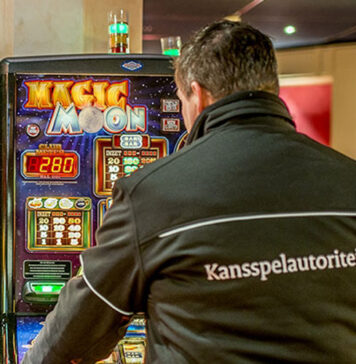As part of its strategy to combat the illegal provision of online gambling, the ANJ, the French gambling regulator, has asked Pricewaterhouse Coopers (PwC) to carry out a study to determine the characteristics of this offering and practices in France. PwC previously conducted a similar study in the UK in 2021.
More specifically, the aim of the study was:
- Monitor the phenomenon in the period from January to March 2023,
- To gain a better understanding of consumption related to this illegal offering, through a qualitative study conducted on over 11.000 people
The illegal offer considered in the study is one that has the following three characteristics:
A game offered to the public that combines expenses, hope of profit and randomness;
A gaming offer accessible on French territory, via an Internet connection giving a French IP (without the use of VPN or a proxy);
Lack of authorization for the operator of the mobile site or application to offer its online gambling.
An illegal offering characterized by online casino games and slot machines and powered by the most vulnerable players
- The gross gaming revenue (GMP) generated by the illegal offering of online gambling in France is estimated between 748 million and 1,5 billion euros, i.e. between 5 and 11% of the global gambling market I gamble.
- 50% of the online traffic of the illegal online gambling offer is said to be generated by online casino games (such as roulette, dice games, blackjack and baccarat) and slot machines.
- The study conducted from January to March 2023 identified 510 illegal websites that allegedly generated traffic on French soil. 21 of them alone account for 60% of the traffic in the illegal gambling offer.
- 50% of illegal offering websites belong to companies registered in Curacao.
- 79% of the PBJ generated by the online gambling market would come from players with a risky gambling practice.
Typical player profile on the illegal offer
- An estimated 3 million people gambled illegally at least once a month in 2023.
- The main motivations of consumers
- Consumers of illegal offers mainly report being aware of these sites from: online searches (19%), online advertising (18%) and social networks (18%).
- 35% of illegal offers consumers would use a VPN to play games
Necessary diversification of actions against illegal supply
Since March 2022, the ANJ has had the power to block illegal sites. Administrative hold orders are now faster and less expensive. Since then, 300 administrative blocking orders involving 1.230 blocked URLs have been issued by the ANJ. Thus, in a year and a half, thanks to the introduction of this procedure, the ANJ managed to block almost as many URLs as in 12 years of judicial blocking procedure.
If, as it would appear, the law does not provide it with any other specific means of action to combat this illegal offer, the ANJ intends to quickly take a number of actions, namely:
- make targeted reports to the judicial authority to ensure that criminal proceedings are initiated against persons who, registered in Curacao or Cyprus, are exploiting such sites which today operate with impunity and which the National Council of Public Health cannot punish;
- Target publishers of illegal gaming software and companies that provide hosting solutions to illicit sites;
- Take action against payment service providers that enable financial flows between illegal operators and operators;
- Deepen the exchange of information and good practices with European counterparts in the GREF (European Gambling Regulators Forum);
- Strengthen public information on the dangers of illegal sourcing.
The risks associated with illegal offers
Playing on an illegal site entails multiple risks for the player because:
- earnings are rarely paid: no legal action is opened against the illegal operator;
- Minors are not protected;
- there is a lack of legal agreements for the protection of players: self-limitation of participation, deposits and playing time, voluntary ban and self-exclusion from gambling, identification and accompaniment in case of excessive or pathological gambling;
- Risks of identity theft and theft of bank details;
- Risks arising from money laundering and terrorist financing.












